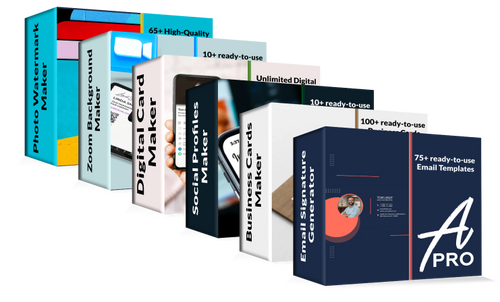For companies everywhere, including social media into inbound marketing plans has changed their whole approach. Social media channels let companies not only tell their stories and ideals but also listen to and react to the demands and preferences of their target market. Essential elements for drawing in and keeping consumers, trust, and credibility are developed by this dynamic relationship. This blog intends to empower business owners, entrepreneurs, and marketing experts with the insights needed to properly use social media platforms and propel sustainable development by investigating their relevance in inbound marketing.
What Is Inbound Marketing?
Through meaningful information and experiences catered to their needs and interests, inbound marketing—a strategic approach—is meant to attract, captivate, and delight customers. Unlike conventional outbound marketing, which annoys possible consumers with unwelcome messages, inbound marketing grabs their attention by offering pertinent and useful information. All of these strategies—content marketing, search engine optimization (SEO), social media interaction, email marketing—are meant to foster trust and create long-term partnerships. Inbound marketing organically attracts prospects to a company by matching content with consumer interests, therefore transforming them into devoted consumers and brand champions.
Why Is Social Media An Important Part Of Inbound Marketing?
Enhances Brand Visibility and Awareness
Social media channels give companies a large audience so that they can greatly raise brand awareness and visibility. Companies can build a strong online presence by regularly distributing worthwhile material, interacting with followers, joining in pertinent discussions, and doing outreach campaigns. This increased visibility not only draws in possible clients but also strengthens brand identification, therefore facilitating memory of and brand choice among prospects ready to make a buy.
Facilitates Direct Engagement and Interaction
Social media's capacity to enable direct interaction and involvement between companies and their consumers is among its strong features. Through comments, likes, shares, and direct messages, companies can communicate with their customers in real-time, addressing their questions, concerns, and feedback promptly. Long-term client connections and loyalty depend on a sense of community and trust, which this degree of involvement helps develop.
Drives Traffic to Your Website
Social media acts as a gateway to drive traffic to a company's website, where prospects can learn more about products or services and ultimately convert into customers. Sharing blog entries, landing pages, and other worthwhile material on social media will help companies draw customers that are actually interested in what they have to offer. Social media channels also frequently offer analytics tools to monitor the success of these initiatives, therefore enabling businesses to modify their plans for optimal results.
Supports Content Distribution and Amplification
Content is at the heart of inbound marketing, and social media plays a crucial role in distributing and amplifying this content. Businesses can more successfully contact their target audience and inspire involvement by distributing on social media articles, films, infographics, and other information suited for their buyer profile. Social media's ability to let followers share material also helps to increase its impact. Maximizing the return on investment in content production and guaranteeing that important information gets as many feasible consumers depend on this amplification effect.
Provides Valuable Insights and Analytics
Rich data and analytics available on social networking sites allow one to have an insightful analysis of consumer behavior, preferences, trends, and the influence of social interactions. Analyzing data such as audience demographics, click-through rates, and engagement rates helps companies to better know what appeals to their particular market. These realizations help businesses to more precisely customize their marketing plans and content, guaranteeing that they satisfy the demands and expectations of their target market.
Enhances SEO and Online Presence
A company's search engine optimization (SEO) efforts and general internet presence can be much improved by social media activity. Likes, shares, and comments are among the social signals search engines evaluate as markers of content relevancy and quality. Businesses can raise their search engine results by keeping a strong and interesting social media presence, therefore facilitating the online search for possible consumers. Driving natural traffic and reaching long-term marketing success depends on this synergy between social media and SEO.
Can Social Media Marking Help With Customer Service?
By giving companies direct and instantaneous means of contact with their consumers, social media marketing can greatly improve customer service. Using Twitter, Facebook, and Instagram, businesses can promptly answer questions, resolve issues, and provide help in real-time, fostering a more responsive and customized consumer experience and supporting their branding initiatives. This immediacy not only speeds up problem-solving but also shows the dedication of a brand to consumer happiness.
Is Social Media Equally Important For Outbound Marketing?
While social media is a cornerstone of inbound marketing, it also plays a significant role in outbound marketing strategies. Using sponsored ads, and social media channels enables companies to target particular groups, therefore reaching potential consumers who might not have come across the brand naturally. Using user behavior, interests, and demographics, these adverts can be rather tailored to guarantee that marketing messages reach the correct target at the correct moment. Social media also makes retargeting campaigns possible, when advertising is shown to consumers who have already interacted with the brand, therefore raising the possibility of conversion. Including social media in outbound marketing campaigns helps companies increase brand awareness, reach, and more focused traffic to their products.
Which Social Media Platforms Should I Use For Inbound Marketing?
- Facebook: With its vast user base and diverse demographic, Facebook is ideal for reaching a broad audience. It offers robust advertising options, detailed analytics, and features like Facebook Groups and Pages that facilitate community building and engagement.
- Instagram: Perfect for visually-driven content, Instagram is highly effective for brands that can leverage images and videos to tell their story. Features like Stories, IGTV, and Shopping make it a powerful tool for engaging with younger audiences and driving conversions.
- LinkedIn: As the go-to platform for professionals, LinkedIn is essential for B2B marketing. It allows businesses to share industry insights, network with potential clients, and establish thought leadership through articles, posts, and LinkedIn Groups.
- Twitter: Known for its real-time updates and concise messaging, Twitter is excellent for sharing news, updates, and engaging in conversations with followers. It’s particularly useful for brands looking to stay relevant and responsive to current events and trends.
- Pinterest: Ideal for brands in the lifestyle, fashion, food, and DIY sectors, Pinterest allows users to discover and save ideas through visually appealing pins. It’s a great platform for driving traffic to websites and blogs through high-quality images and infographics.
- YouTube: As the second largest search engine, YouTube is crucial for video content marketing. It enables businesses to create and share tutorials, product reviews, and other engaging video content that can attract and retain a dedicated audience.
- TikTok: Emerging as a powerful platform for short-form video content, TikTok is particularly effective for reaching younger demographics. Brands can leverage trends, challenges, and creative content to engage users and build a strong, authentic presence.
- Snapchat: With its focus on ephemeral content, Snapchat is great for brands targeting a younger audience. It offers unique features like Stories and Discover, which can be used to share behind-the-scenes content, promotions, and interactive experiences.
Conclusion
In conclusion, social media is an indispensable element of inbound marketing, offering unparalleled opportunities for businesses to enhance brand visibility, engage directly with their buyer persona, drive website traffic, and gain valuable insights. Its dynamic nature allows for real-time interaction and content amplification, fostering trust and long-term customer relationships. Moreover, social media's role in outbound marketing further amplifies its importance, enabling targeted advertising and retargeting strategies that boost brand awareness and conversions. By effectively leveraging social media, businesses can create a cohesive and powerful marketing strategy that drives sustainable growth and success in today's competitive digital landscape.
Final Thoughts
Discover the power of personal branding with Artlogo. We excel in creating distinctive branding elements like handwritten signatures, business cards, and social media icons that make your business unforgettable. Our unique approach guarantees your brand stands out. Visit Artlogo and enhance your brand presence today.
Sources
- https://www.impactmybiz.com/blog/inbound-vs-outbound-marketing/
- https://www.americanexpress.com/en-ca/business/trends-and-insights/articles/7-ways-to-attract-and-retain-customers-through-social-media/
- https://www.linkedin.com/pulse/building-effective-social-media-customer-service-team-b-sellas-p88ne



























Share to: